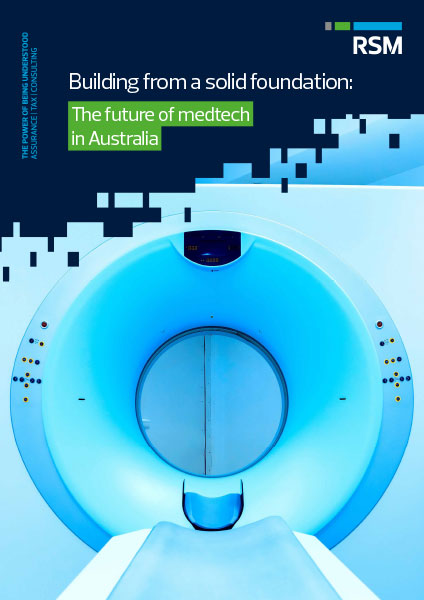Channel 7: August 2023
The following story appeared on 7NEWS August 2023.
When nature delivers new medicine: Our soft tissue sarcoma therapy Yondelis® (trabectedin) has this month been listed on the Pharmaceutical Benefits Scheme for patients with advanced liposarcoma and leiomyosarcoma, but you may be surprised where scientists originally sourced this novel compound.
Pharma Dispatch: 20 January, 2023
Pharma Dispatch
20 January 2023
New Zealand Approval for Specialised Therapeutics’ Cancer Therapy
Specialised Therapeutics Asia has announced that its therapy to treat rare gastrointestinal stromal tumours, QINLOCK (ripretinib), has been approved for use in New Zealand and will now be considered for funding by PHARMAC.
The regulator, Medsafe, has approved QINLOCK for treating adult patients with GIST who have received prior treatment with three or more kinase inhibitors, including imatinib.
The company said it is being made available to eligible patients in New Zealand via a co-pay access program while it is considered by PHARMAC.
In a joint statement, medical oncologists Dr Joanna Connor and Dr Clement Korenbaum from the Auckland City Hospital said QINLOCK would provide patients with another treatment option and align with international standards of care.
“QINLOCK offers clinically meaningful benefits in progression-free and overall survival for patients living with advanced GIST,” they said. “It offers an option for patients who have progressed on other treatments.”
“We would now support having fully funded access to QINLOCK for all those affected by advanced GIST who meet the pivotal study’s criteria.”
61-year-old Auckland grandfather and sales manager Tom Turrall was diagnosed with GIST earlier this year after being admitted to hospital for what doctors initially believed was a bleeding ulcer.
“The approval of QINLOCK means hope and an opportunity,” said Mr Turrall.
“I want to live to see my grandchildren grow. I want to live to be able to experience growing old with my wife. I want to live to be able to spend some time relaxing and enjoying what we have worked for. The approval of QINLOCK will remove a level of anxiety that I live with every day as it provides an opportunity for an additional treatment option.”
Mr Turrall said it was critical that PHARMAC now fund QINLOCK.
“PHARMAC funding will mean the financial burden is eased. We consider ourselves the average Kiwi couple. We have worked hard for what we have accumulated and are looking forward to retirement. We are not sure what we will do if we have to fund (any) treatment ourselves.”
QINLOCK belongs to a class of drugs known as tyrosine kinase inhibitors, or TKIs. It is designed to inhibit key enzymes linked to tumour growth. In Australia, it has been fully reimbursed via the PBS since 2021.
Specialised Therapeutics is commercialising QINLOCK in New Zealand under an exclusive distribution agreement from US-based Deciphera Pharmaceuticals.
CEO Carlo Montagner said, “We are hopeful for a positive outcome by PHARMAC so that patients with advanced GIST in New Zealand have ready access to this important new treatment option.”
Pharma in Focus: 20 January, 2023
PHARMA IN FOCUS
By Tiffany Walker 20 January 2023
ST Notches Another Win
Specialised Therapeutics (ST) has scored approval for Qinlock in New Zealand, marking the second of five regions that the company has rights to commercialise the advanced gastrointestinal stromal tumour (GIST) treatment.
The Singapore headquartered company was established to commercialise new therapies and technologies to patients in Australia, New Zealand and across South-East Asia.
It secured exclusive distribution rights for Qinlock in five regions – Australia, New Zealand, Singapore, Malaysia, and Brunei – in a deal with US-based Deciphera back in November 2020.
Locally, the oral treatment was approved in July 2020 under Project Orbis and has been available on the PBS for over a year.
Qinlock is currently being made available to eligible patients in New Zealand via a co-pay Access Program while it is considered by PHARMAC for reimbursement.
ST Co-founder and CEO, Carlo Montagner said: “We are hopeful for a positive outcome by PHARMAC so that patients with advanced GIST in New Zealand have ready access to this important new treatment option.”
Qinlock belongs to a class of drugs known as tyrosine kinase inhibitors and is designed to inhibit key enzymes linked to tumour growth.
A pivotal Phase 3 clinical trial in patients with advanced GIST showed that Qinlock was able to reduce the risk of disease progression by 85 per cent with a median progression-free survival of 6.3, compared to one month in the placebo arm.
Last year, the drug was one of 33 nominees for the prestigious Prix Galien USA Awards in the ‘Best Pharmaceutical Agent’ category.
Singapore’s Health Sciences Authority has been evaluating Qinlock since mid-2022, meaning it’s the next likely regulator to make a decision on registration.
MedNews: 9 March, 2022
MedNews
By Megan Brodie 2022
ST Boss is Comfortably Outnumbered
 Carlo Montagner (centre) with some of ST’s female employees.
Carlo Montagner (centre) with some of ST’s female employees.
At homegrown pharma company Specialised Therapeutics, 82 per cent of employees are women, three in every four employees is aged over 40, and nine of the 12 executive team members is female.
Age, gender, and ethnicity are not a consideration when hiring, says CEO Carlo Montagner, who instead employs people that best fit with the values of the business he co-founded with his wife, Bozena Zembrzuski.
“We are not gender-quota focused, we are just focused on the needs of the business,” Montagner says. “When hiring, we focus on the values of a person and ask ourselves, ‘are those values consistent with the values of the company?’ That is paramount. Everything else is a distraction.”
While this perspective has resulted in Specialised Therapeutics’ (ST) workforce being heavily skewed towards females, Montagner is more than comfortable being among a minority of male employees at the company – and he thinks it is good for the business.
“Are we concerned that our workforce comprises too few men? No, it has never come up in any leadership discussions, or any other discussion,” Montagner says. “Those sorts of attributes are not a factor in our recruiting policy.
“We have just hired a woman over 60, meaning we now have three women aged over 60, and neither their age nor their gender was ever a factor in our decision making. We were purely focused on their talent and competencies.
“We have always sought the best candidates for a role regardless of gender, age or ethnicity. It is all based on merit.”
Montagner is not alone in Australian pharma in being a male leader who strongly supports women, although he credits three women in particular for helping shape his perspective: his wife Bozena, his mother, and Merck Healthcare CEO Belén Garijo.
Zembrzuski had her own successful pharma career when they founded ST, says Montagner, adding she was “very, very good at what she did”.
“There are a lot of decisions made that look on the surface like they have come just from me, but they have come after lengthy discussions and guidance from Bozena,” he adds.
Montagner says his mother was a great mentor and role model for him as she worked six days a week for 40 years running a factory while managing the family finances.
“She ran everything,” he says while with Garijo, he “inherited her as a boss” when they both worked at Aventis in the US.
“I had absolutely no issues and learned a lot from Belén in terms of drive, tenacity and real persistence in getting very difficult jobs done. I also learned about managing upwards because she was very good at managing the senior executives at Aventis, which at the time was a huge company.
“I have always had very strong women in my life so am extremely comfortable being in a situation where ST employs so many women. For me, it is normal.
“Women offer a degree of empathetic perspective that men sometimes don’t have. They also tend to be less ego-driven and more focused on the task. Speaking in general terms, men can be distracted by other factors that are not really at the core of the issue that needs to be resolved.”
With a career spanning three decades in the pharmaceutical industry, Montagner is not surprised the industry now employees more women than men and believes pharma “lends itself to attracting and retaining women in key roles”.
“It is a great industry for women to aspire to work in,”; he says. “You see women staying in the industry for pretty much their entire career – the age profile in our company reflects that.
“It is good for women to know that the statistics demonstrate this is an industry that really celebrates and supports people’s longevity. I would describe it as a highly-professional environment.”
Pharma in Focus: 10 February, 2022
PHARMA IN FOCUS
By Christine Spiteri 10 February 2022
Who’s Mandated a Third Jab?
Specialised Therapeutics has made a third COVID-19 vaccine compulsory for all staff, to ensure a safe office environment for employees returning to work.
The team was told on Christmas Eve last year that booster shots for those who were eligible would be compulsory for going back to the office in 2022.
“We’re in the pharma industry, we understand how to interpret data and it was really becoming very obvious early in December that a booster was required – not only to protect against the emerging Omicron but also to protect against Delta,” CEO Carlo Montagner said.
“What I’ve said to all our staff is that we want to offer you the most controlled and safe workspace to operate in – much safer than you being at home, or going out to the supermarket.”
The mandatory third jab applies to all staff, including those working in the company’s offices located overseas, as well as visitors.
In addition, the Melbourne-based pharma is supplying employees with RAT tests, the results of which must be photographed with a timestamp and sent to HR prior to attending the office. Twice weekly tests are required of those in the office five days a week, once for those attending three days.
As well, social distancing has been increased by three to four times the minimum 1.5 metre rule and masks must be worn indoors at all times.
Mandatory office days
The Covid safety measures support a second mandate by the company that all core staff – about 20-25 employees – work from the office on Monday, Tuesday and Wednesday of every week.
Montagner said working remotely had slowed the company down. “Not having people together – at least the core group – makes communication difficult,” he said.
“I would say it’s 30 to 40 per cent harder to achieve the same outcome as working in the office together.
“It’s the simple things – you call somebody because you need to talk to them about something and you can’t reach them for whatever reason, then you need to follow up that call.

“Those sorts of incidental occurrences, every day of the week, happening multiple times in the day – soon you have this snowball effect and you have to work harder to reach the same outcome.”
“It’s time-consuming and tiring and fatiguing.”
Montagner said while staff were still allowed flexibility with their working hours plus Thursday and Fridays working from home, a complete ‘laissez faire’ approach to office attendance doesn’t work for pharma. “I think it’s a very short term philosophy to leave it up to staff to decide whether they come into the office or not,” he said.
“Yes, in some industries that would work. But in our industry where the logistics required to get a drug physically available in a chemist for a patient to access – it’s enormous.
“We need to remember we are working to produce an outcome that impacts people’s lives. For us we’re in the cancer space predominantly – and at the end of the day we have to make sure we have these drugs available for patients.
“That’s what it comes down to.”
Pharma in Focus: 21 December, 2021
PHARMA IN FOCUS
By Christine Spiteri 21 December 2021
Job Boom Hits Growing Pharma
Specialised Therapeutics is experiencing a mini-jobs boom, with the company’s growing portfolio and expansion across South East Asia requiring a boost to its workforce.
The company currently has a staff of about 40 but is actively looking to fill five new positions with more roles opening up in the next 24 months.
“We’re going through quite an expansion at the moment – our portfolio is continuing to grow and we have several more partnerships we’re close to announcing for branded specialised therapies,” CEO Carlo Montagner said.
“What we’ve projected over the next two to three years is probably an increase of another 50 to 60 per cent of staff.”
Jobs currently up for grabs include Head of Quality Assurance; Scientific Medical Advisor – Oncology/Haematology and Pharmacovigilance Manager South East Asia.
Although the company is headquartered in Melbourne, its Singapore office is about to move to bigger premises as the company expands its footprint in Asia.
In addition to licenses to supply approved products to Australia, New Zealand, Singapore and Malaysia, Specialised Therapeutics also has regulatory applications under evaluation in Thailand, Vietnam and the Philippines.
“Our goal is always to partner with two new companies a year or two new products per year – that’s our minimum threshold, so we have very active business development discussions continuously,” Montagner said.
“We have new products for the portfolio but we are also starting to ramp up our south-east Asia operations.”

Tough jobs market
Montagner said seeking regulatory approval and offering access programs in multiple countries had created logistical challenges and demand for more staff.
“These are all below the commercial line functions – so not a lot of visibility to the general public – but these are key functions to operate efficiently as a pharmaceutical company,” he said.
The jobs market is hot, according to Montagner who said medical roles, particularly, can be a challenge to fill. But he said Specialised Therapeutics, a company he started with his business partner and wife in 2008 has the edge on traditional Big Pharma when it comes to landing top talent.
“What we offer is variety,” he said. “The benefit of our company is that we choose who we partner with and the products that we take on board.
“So, with pharmaceutical companies that have a pipeline of drugs, you really just accept whatever comes down that pipe and you’re beholden to the quality of that pipeline and the therapeutic areas that the company wants to strategically invest in.
“We have an amazing pipeline of drugs, companies would kill for the pipeline that we have already.
“And we know what we’re doing. We have the expertise, the infrastructure, the resources and the planning in place to ensure we optimise the commercialisation of these products.
“We partner with multiple companies – European based, US-based and we’re hopefully close to doing our first China deal.
“We have this breadth of partnerships over multiple geographies, multiple product therapeutic areas, we’re dealing with lots of different people. We’re launching in multiple countries with new products.
“It’s a really exciting time to be in our company.”
Channel 7: November 2021
The following tweet and story appeared on 7NEWS November 2021.
A new treatment is now within reach for sufferers of a rare and incurable cancer. The new tablet has been listed on the PBS, helping buy patients precious time. Click here to watch: https://youtu.be/bPUTlbcamVo
@AKunowski
#7NEWS

Australian Financial Review: 15 March, 2021
Australian Financial Review
By Carrie LaFrenz 15 March 2021
Latitude Offers Payment Plans for $5000 Breast Cancer Test
When Carlo Montagner – the founder of Australia’s largest independent specialist pharmaceutical company – was buying a new sofa at Harvey Norman he saw a Latitude Financial Group sign, and it sparked an idea.
A year on, his company, Specialised Therapeutics Australia, has signed a new deal with the IPO hopeful, which will provide interest-free payment plans for up to two years for a genomic test for breast cancer that costs $5000.

Carlo Montagner, founder of Specialised Therapeutics Australia, says the company has been rejected six times by the federal government after seeking reimbursement for a commonly prescribed genomic breast cancer test. Arsineh Houspian
The multi-gene test, known as the Oncotype DX Breast Cancer Assay, predicts a patient’s likely benefit from chemotherapy and the overall risk of breast cancer recurrence. It is able to determine whether an early breast cancer patient needs chemo, or whether she can be safely treated with hormone therapy alone. Without this test, many women might go though chemo unnecessarily.
“I thought if people can spend $4000 or $5000, or even $7000 purchasing sofas or a barbecue – everyday items – why can’t they take advantage of a similar interest-free payment plan for an item that is going to benefit their health, which is far more important,” Mr Montagner told The Australian Financial Review.
STA has been rejected six times by the federal government after seeking reimbursement for this commonly prescribed test, approved by the TGA. Mr Montagner said as a result, he had to seek novel ways for women to finance this assay.
After seeing the Latitude sign in the home and electronics retailer, Mr Montagner contracted several possible lenders, including buy now, pay later players Zip and Afterpay, which do offer dental plans.
“We are entering uncharted territory here. Zip and Afterpay had a cap of $2000, and they were risk averse,” Mr Montagner said.
“This is a pilot, exclusive arrangement with Latitude for a breast cancer assay that helps women make that decision, whether they should or shouldn’t have chemotherapy. If this goes well, then we would like to advance this into our other cancer therapies.”
Australia an ‘outlier’
Credit plans in oncology have always been a tricky space due to the perceived risk associated with cancer patients. But the women who are eligible for Oncotype DX are typically “healthy” apart from breast cancer diagnosis; have been diagnosed early and are typically under 65 years old.
Only about 300 women a year in Australia are accessing this test, but 3000 out of the 18,000 women a year diagnosed with breast cancer should be getting it.
Mr Montagner added some women seeking the genomic test but who did not have the disposable income to cover it, would be willing to pay by credit card, break into their superannuation or dip into the equity of their home.
Mr Montagner is still trying to get federal Health Minister Greg Hunt’s attention on the matter (he has also spoken to his local member, Treasurer Josh Frydenberg).
“This test is reimbursed on every international cancer treatment guideline around the world,” Mr Montagner said. “Australia is an absolute outlier here. This is being prescribed by cancer experts in Australia every day.”
STA pays a sliding merchant service fee based on the payment plans women choose from six, 12, 18 or 24 months. No fee is paid by the oncologist, but there is a $99 annual card fee paid by the patient.
As a new customer with Latitude, the women would have to go through traditional credit history checks. This is a regulated product under the Credit Act. Patients will pay no interest, provided monthly repayments of up to $208 are met.
Latitude’s instalment payments product has done well, thanks to the growth in sales at retailers such as Harvey Norman, but the pair have been criticised for pushing a credit card with an eye-watering interest rate of 22.74 per cent.
Latitude, which is owned by buyout group KKR, alternative investor Varde, Deutsche Bank and now Japan’s Shinsei Bank, declined to comment. The group already provides payment plans in audiology, cosmetics and dental segments.
This agreement is a first in oncology and expected to pave the way for other pharma companies to follow suit and find alternate ways for patients to access new therapies and technologies that are not yet reimbursed via the PBS.
STA is an independent pharma company supplying specialty medicines (mostly in oncology and haematology) in Australia, New Zealand and south-east Asia.
The company was founded 12 years ago by Mr Montagner and his wife Bozena Zembrzuski, who brought a chemo medicine called Abraxane to Australia that has since become one of the most successful chemotherapies commercialised here.
Pharma Dispatch: 15 March, 2021
BioPharma Dispatch
15 March 2021
Australians Will Need to ‘Reconcile Themselves to this New Reality’
STA’s Carlo Montagner says the company’s finance arrangement with Latitude Finance to support patient access to a cancer recurrence diagnostic is unfortunate but that Australians need to “reconcile themselves to this new reality” while government funding remains such a challenge.
Specialised Therapeutics Australia (STA) has announced the arrangement with Latitude Finance under which breast cancer patients can access interest-free payment plans of up to two years to pay for the Oncotype DX genomic test.
The profiling test analyses 21 genes in a breast cancer tumour sample. The test can help predict the risk that a woman’s breast cancer may recur and the likely benefit chemotherapy may have in reducing that risk.
Results from the TAILORx clinical trial showed women diagnosed with hormone receptor-positive, HER2-negative, node-negative early breast cancer may be able to avoid chemotherapy if they undergo the OncotypeDX test and receive a mid-range recurrence score.
The unreimbursed test currently costs Australian women $5,000 putting it out of reach for many women who have gone on to endure chemotherapy – sometimes unnecessarily.
STA CEO Carlo Montagner said the new finance option followed six “frustrating” attempts to have the Oncotype DX test reimbursed by the federal government for all eligible breast cancer patients, as is the case in many countries around the world.
“We have tried on multiple occasions to have this test reimbursed for Australian women. These efforts are ongoing, but we trust that in the interim, this new third-party finance arrangement will help many breast cancer patients afford this important technology which in turn, may help them to avoid chemotherapy,” he said.
The last rejection by the Medical Services Advisory Committee was marked by an evaluation process in which a competitor made a submission just days before it was due to consider Oncotype DX. STA was not informed of the submission, let alone given an opportunity to respond, and it was only revealed through a Freedom of Information request.
Mr Montagner said he believes the partnership with Latitude Finance is the first time an Australian pharmaceutical company has engaged with a third-party financial institution to help patients fund access to a technology like the Oncotype DX test.
He told BioPharmaDispatch the arrangement “is a pity but what was the alternative?”
“Australians may have to reconcile themselves to this new reality. If decision-making does not change, these arrangements will be the natural consequence of no access or very delayed access.”
He said, “This will pave the way for similar outcomes due to a lack of federal government funding for many therapies and treatments commonly available in other countries.”
Under the terms of the agreement, Australian women who decide to take an Oncotype DX Breast Recurrence Score test can now use an interest-free two-year payment plan to pay for the one-off $5,000 test. Patients will pay no interest, provided monthly repayments of up to $208.00 are met.
“Avoiding chemotherapy when there is no proven benefit to be derived can spare many women from experiencing six months of aggressive treatment, which can be traumatic and debilitating. In some cases, it can result in permanent side effects.
“It is unfortunate for Australian women with breast cancer that the Oncotype DX test is not reimbursed as it is in many other developed countries, including the US, UK, Canada, Germany and other European territories.
“In those countries, it is widely used. The Oncotype DX test is recommended by the leading international cancer treatment guidelines as a test to help guide decisions about whether a woman actually needs chemotherapy or whether she can be treated with hormone therapy alone.”
Mr Montagner added, “Without Federal Government funding and without accessible personal savings, hundreds of Australian women have been unable to afford this important test.
“As a company and a community, we must find new ways for all Australians to access new therapies and technologies that are recommended by their specialist doctors but are not reimbursed. This is a step in the right direction. STA is proud to partner with Latitude Finance, which has an established presence in healthcare and is now extending its offering in this space due to strong patient demand.”

